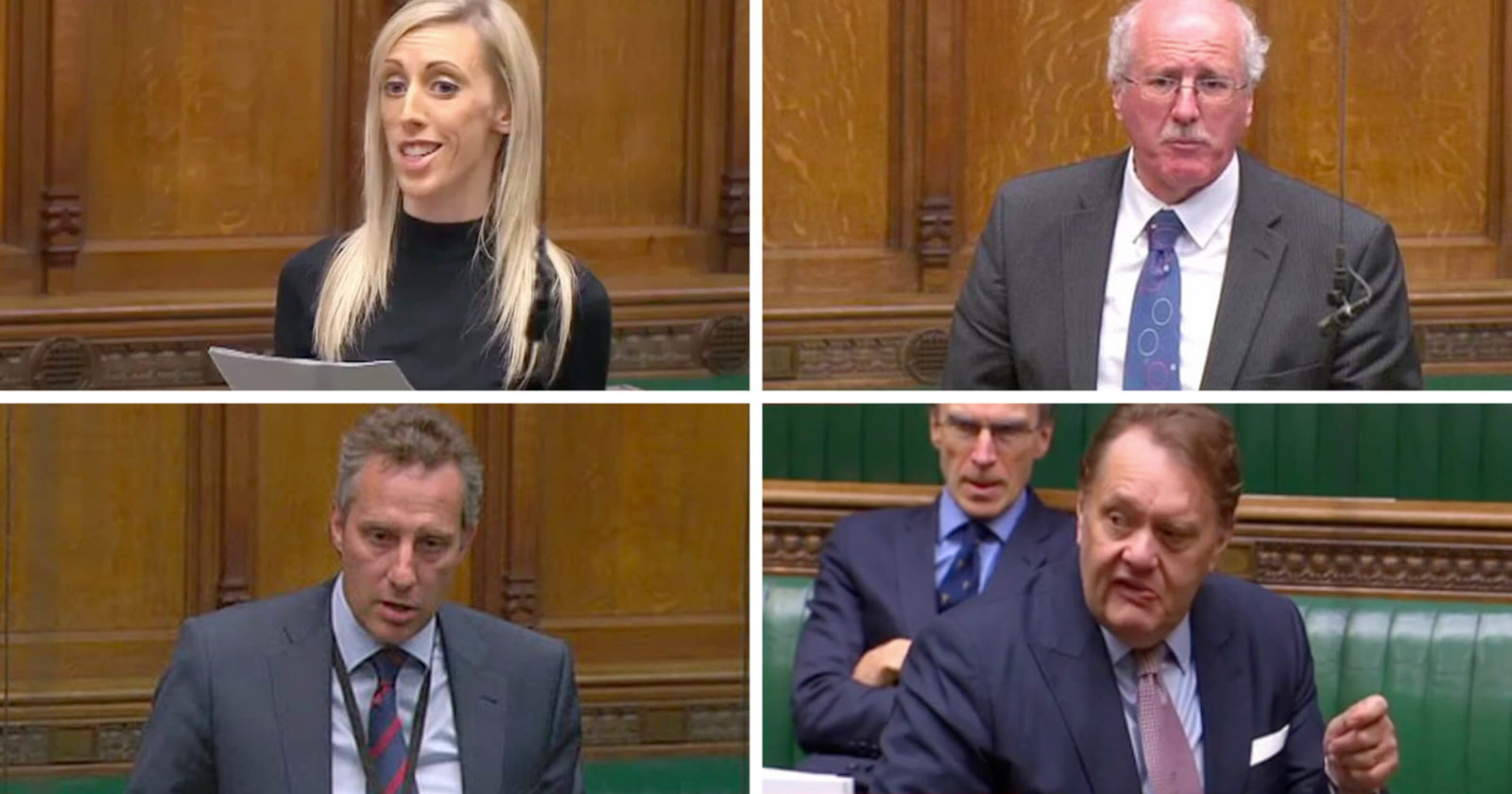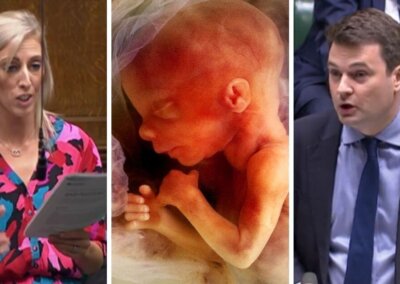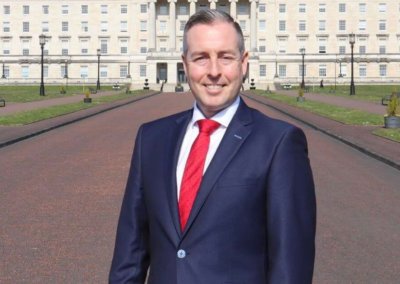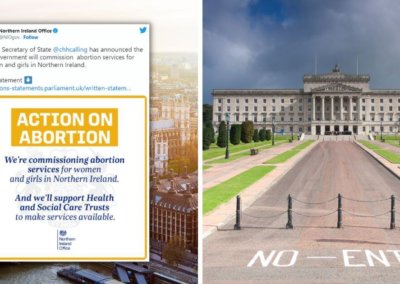The Minister for Northern Ireland, Robin Walker MP, has claimed that the extreme abortion regime imposed on Northern Ireland mirrors the regulations of the Abortion Act 1967 in the rest of the UK.
In a Committee debate, held yesterday, the Minister for Northern Ireland said regulations were implemented in a way that means that the outcomes delivered will be equivalent to those in the rest of the UK.
However, a group of cross-party MPs pointed out how the extreme regulations go much further than the UK regulations and urged the Minister to respect devolution and let Northern Ireland decide its own abortion laws.
‘The people of Northern Ireland were ignored’
In his speech, Ian Paisley MP revealed some key and distinct ways in which the regulations differ from the rest of the United Kingdom.
Firstly, he notes that abortions can take place up to 12 weeks without conditionality, for the first time in the UK, allowing for sex-selective abortions to take place.
Sex-selective abortion usually targets baby girls due to a preference among certain parents and some cultures for having sons. This is not speculation. This practice is already happening in other countries which have very permissive abortion laws. For example, abortion is available in Canada for any reason and as such, it has been described as a “haven” for parents wishing to have an abortion because their child is a girl.
There is also evidence of this practice in the UK and it is possible that a form of ‘abortion tourism’ will arise as people from other countries seek abortions on the basis of the sex of their child.
Ian also drew attention to the fact that while in Great Britain two doctors need to sign off on a termination this is not the case with Northern Ireland’s regulations which will allow a midwife, a nurse, or anyone with a medical qualification, to sign off on a medical abortion.
In England and Wales, abortions can only be performed by a registered medical practitioner (doctor), and the Abortion Act requires the approval of two doctors before an abortion can be performed.
Even with this legal restriction in place, there are still many cases of complications during abortions in the UK, resulting in babies being born alive, women’s uteruses being perforated or severe haemorrhaging that has resulted in death.
Under the new regime, there is no requirement that a doctor performs the abortion and no requirement for the approval of two doctors before an abortion can be performed.
The DUP MP also revealed how sanctions for those who breach the extreme abortion regime , such as a male who has surreptitiously given a woman an abortion pill, mean “a person can buy their way out of that problem with less than £5,000”. Northern Ireland’s current legislation deters individuals from breaking laws which safeguard the lives of unborn babies with a potential prison sentence of five years or more.
In addition to the points raised by Ian, abortions will be available in GP surgeries throughout Northern Ireland. In England and Wales, the Abortion Act (1967) currently restricts abortion to hospitals or places approved by the Secretary of State. This means that abortions are available in a limited number of approved locations and abortion are not routinely provided in GPs surgeries.
Performing abortions in GP surgeries throughout Northern Ireland is a substantially different approach to that of England and Wales. In Northern Ireland under the new regime, all GPs surgeries will be approved locations to do abortions. This will dramatically increase the locations, compared to England and Wales, where this extremely divisive procedure can take place.
The majority of people in Northern Ireland are opposed to these changes to abortion law. The fact that abortions can take place in GP surgeries in villages and towns throughout Northern Ireland, whilst people are opposed to these measures are getting their annual health check-up in the room next door, is highly insensitive to the views held by the majority of people in the province.
In his closing remarks Ian argues that the Government has not listened to the voice of people of Northern Ireland, saying: “The Government did not listen. Do not kid yourself. Do not play the game with us and say, ‘We listened to the people of Northern Ireland.’ I’ll tell you what happened: the people of Northern Ireland were ignored in that consultation.
“In the Assembly vote last week, 76 out of 90 Members, including members of the Alliance party and the Social Democratic and Labour Party, the sister party of the Labour party, voted not only with matters that my party brought forward but with other amendments that rejected these regulations…They were ignored. They were thrown to the side.”
A lack of respect
Carla Lockhart MP started her speech by saying that respect should be at the centre of debate surrounding the imposition of extreme abortion regulations on Northern Ireland, saying: “I believe that the crux of this issue is one of respect: respect for devolution; respect for the devolved Assembly; respect for the will of the people of Northern Ireland; and respect for those with disabilities.”
“Last week, 75 out of 90 Members of the Legislative Assembly indicated that they did not support abortion for non-fatal disabilities, yet this Government proceed. To borrow a phrase, those 75 MLAs want to ‘take back control’ of abortion law. They want to defend the life of the unborn with a disability,” she added.
Carla then brought attention to her open letter calling on MPs from Great Britain to respect devolution and give the people of Northern Ireland ‘their voice back’ and allow them to decide their own abortion laws.
She revealed that since launching the letter with Baroness O’Loan, on Friday, it already has over 12,000 signatories from Northern Ireland. If the same proportion of the UK population signed a petition, that would equate to over 400,000 people.
The Upper Bann MP added that the large number of signatories “shows the depth of feeling in Northern Ireland.”
Carla then highlighted how the regulations discriminate against those with disability allowing for abortion right up to birth, whereas the limit for other babies is set at 24 weeks.
She notes that the discriminatory regulations contradict the UN Convention on the Rights of Persons with Disabilities, and thus contradicts EU law. She then questioned why the parliament in Westminster can pass legislation that is contrary to EU law when the Northern Ireland Assembly cannot.
She also questioned why there were no provisions within the regulations to help parents who want to choose life.
In her closing remarks she said: “These unamendable regulations must be rejected in its current form” and asked why the Government “are permitting the termination of lives, against the will of the Northern Ireland people.”
She added: “I would say that, on balance, the Government need to quickly recognise the errors of their way. Some 79% of the people of Northern Ireland who responded to the consultation on the regulations said no, they did not want a change in the legislation, and they wanted the Northern Ireland Assembly to act in this regard. The regulations will see the most liberal abortion laws foisted on the people of Northern Ireland. If the Government proceed, a Province that has been life affirming and values life will revert to a society that destroys life and terminates existence.”
‘Unwise, unconstitutional and unwanted’
Sir John Hayes echoed the points raised by Carla, that the people of Northern Ireland do not want an extreme abortion regime imposed on them and warned the UK Parliament not to “fly in the face of the will of the people” saying it would be “unconstitutional” and “unwise”.
Citing a recent University of Liverpool poll from February 2020, Sir John revealed that only 5% of voters in Northern Ireland want abortion to be provided up to 24 weeks’ in the province.
He then pointed to further evidence from the study which shows there is cross-community support against the extreme abortion regulations with 58% of Sinn Fein voters, and 54% of DUP voters only wanting abortion to be provided when the mothers’ life is at risk.
The Conservative MP said: “I could go on about polling, but I will simply make this point: it would be easy to assume that women took a different view from men, or that the young took a different view from those who have lived longer. In truth, women are less supportive of the regulations than men, and the young are less supportive than their parents and grandparents.”
“In Northern Ireland, the regulations are certainly unwanted,” he added.
Sir John also brought attention to how the regulations go much further than the requirements set out in the Northern Ireland (Executive Formation etc) Act 2019 and further than the provisions that apply in England and Wales.
He said the “deplorable” regulations, which allow disability-selective abortion right up to birth for disabilities including Down’s syndrome, cleft lip, cleft palate, or clubfoot, “go against all notions of equality that we expect in the 21st century”.
In his closing remarks, Sir John said: “On the grounds of devolution and promoting and protecting the interests of people with disabilities, we should reject these regulations. They are unwise, unconstitutional and unwanted.
“If that has not persuaded members of this Committee, let me finish not with my words but those of Heidi Crowter, a 24-year-old woman with Down’s syndrome who, when reflecting on the regulations that I imagine some people on this Committee plan to vote for, said ‘it makes me feel like I shouldn’t exist’.”
‘Parliament must vote to reject the regulations’
Jim Shannon MP questioned why the UK Government is proceeding with imposing discriminatory disability-selective abortions when the current law in Great Britain is currently the subject of a legal challenge.
He quotes Liz Crowter, the mother of disability rights campaigner Heidi Crowter syndrome, who said: “At 24 weeks babies are viable. You cannot have a law that says it is OK to end the lives of some viable human beings because they have Down Syndrome, while saying that other viable human beings of the same age cannot be because they don’t have a disability, without saying human beings with non-fatal disabilities are worthy of less protection and are therefore less valuable.”
Jim added: “Mindful of such things, Parliament must vote to reject the regulations and ask the Government to think again.”
In his closing remarks the DUP MP added that “the Government now have the chance to extricate themselves from a catalogue of abuses and save themselves from the huge embarrassment of asking Members to vote for disability discrimination.”












